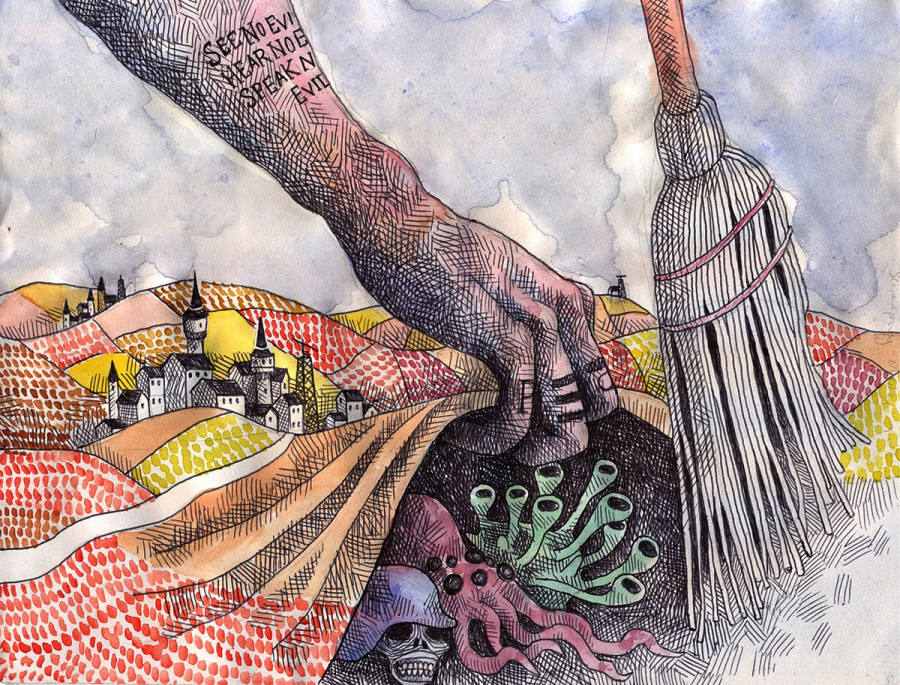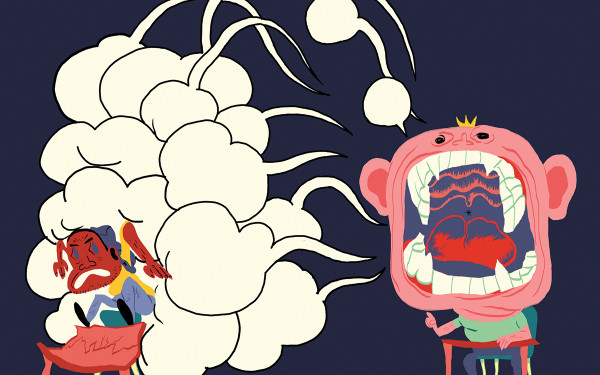In Defense of Political Correctness
I am officially super grossed out by the Internet—by a good percentage of the planet, actually.
You broke me, white dudes—congrats! It took a while, but it finally happened.
Now, listen. I have a lot of feelings. I’m a politically interested, feminist journalism major. I spend a lot of time critiquing extremist right-wingers. It’s just part of who I am and what I do.
That doesn’t mean I don’t respect you if you have more conservative values than I do. An open dialogue between the left and the right is something I actively encourage, as a matter of fact. You have the right to an opinion as much as I do. I’m not trying to silence you. That’s not constructive and I have never advocated for that.
But, here’s the thing: Donald Trump and his supporters have a serious fetish for freedom of speech. Honestly, it’s a bit weird. Don’t get me wrong, what you do behind closed doors is none of my business, but when you bring it out here into the public, online or in my classroom, we all have to deal with it.
Freedom of speech is crucial, of course. You’re not wrong. I think the part you’re struggling to grasp, though, is that it has limitations. Freedom of speech was established so that the government wouldn’t be able to censor you for simply sharing your opinion. This, however, does not protect you from the intense backlash you will most likely receive as a result of spewing really offensive crap.
Freedom of speech does not give you the freedom to oppress. It does not give you the freedom to incite hate. It does not give you the freedom to use slurs that you know will cause harm and offence.
Freedom of speech does not mean you are free from facing the consequences of your words. It also doesn’t mean that I have to agree with you or be silenced by you, and it definitely doesn’t mean that social networks are obliged to provide you with a platform for your nonsense.
Political correctness is not silencing our political dialogue, it’s making it safer and more productive. Trust me, I know that, in the heat of the U.S. elections, everyone is a passionate political science student with an opinion. But, let’s face it—the people at risk of being silenced are not the wealthy, white people with thousands of online followers.
I know you’re angry—we all are—but I think the anti-PC mindset is often fuelled by fear. No one likes when their opinions are challenged, and a lot of people are probably scared that our world is changing too quickly for them to adapt. That discomfort is valid—it’s called “guilt” or “privilege.” It can be hard to accept criticism, but it is absolutely necessary in preventing important voices from being marginalized.
If someone asks you for your dream dinner party guest list and it consists of Donald Trump, Milo Yiannopoulos, Ann Coulter and Rush Limbaugh—you do you. That’s your choice and you have the right to share that. It is fact, though, that those people aren’t just innocently expressing their thoughts. They are instigating targeted abuse against minority groups—and it looks like you’re buying it.
Hateful words don’t just hurt people’s feelings, they set back our societal development by decades. I’m sorry that you feel attacked when I tell you that using slurs or oppressive language is inappropriate, but, frankly, your outlook might be a little archaic.
Words are powerful. As a writer, this statement resonates more to me than to a lot of other people. We can either use our words to hurt and oppress people, or we can use them to ignite conversation and change. That choice is up to you.






_600_375_90_s_c1.jpg)
_600_375_90_s_c1.jpg)